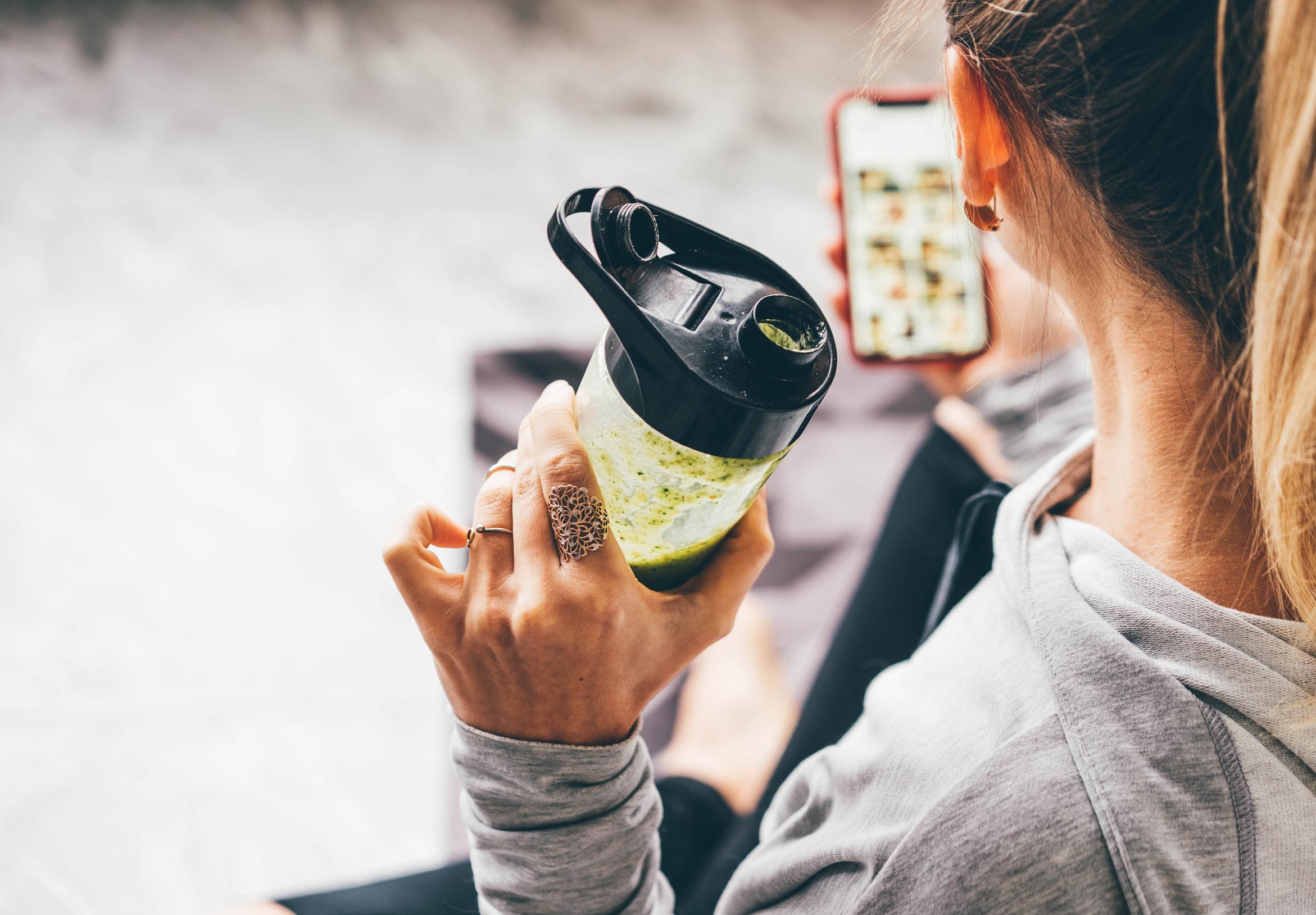

Vitafoods Europe 2023 Trend Guide Product innovations, consumer trends, and nutraceutical science: Highlights from Vitafoods Europe 2023
Introduction
Held in Geneva, Switzerland, Vitafoods Europe is the most important nutraceutical trade show in Europe with a global focus: it attracts over 25,000 nutraceutical and supplement industry experts from over 130 countries every year.
Where better to scout out the biggest trends and innovations that are shaping the future of the nutraceutical, supplement, health, and wellness industries?
This trend insights guide will shine a spotlight on the most important innovations seen at Vitafoods Europe 2023, bringing together interviews with leading experts and market analysts. It also looks at the winners of the Vitafoods Europe Startup Innovation Challenge, which celebrates innovative startups that are breaking new ground in nutraceutical ingredient development.
Contents
Innova Market Insights: Identifying which functional ingredients are catching the consumer eye 4 SPINS: The long-term future is bright for the US supplement market 6 New Hope Network: Achieving growth in an uncertain marketplace with a data-driven approach 7 FMCG Gurus: How the cost-of-living crisis is impacting health and wellness purchases 8 Mintel: Personalisation gives sports nutrition brands a competitive edge 10 Euromonitor: Healthy ageing is driving personalised nutrition opportunities 12 Introducing the Future of Nutrition Summit 14 How using network science creates opportunities in the era of ‘multi-omics’ 14 The Vitafoods Europe Conference 16 Scientific innovation behind sports and active nutrition success 17 Healthy ageing: Dr Richard Siow on measuring healthy ageing: Biomarkers, DNA methylation, and happiness 18 Identifying natural ingredients to support sleep and mental wellbeing 20 Understanding the science behind immune health 22 Counting the costs of going green: Vitafoods Insights Sustainability Survey 2023 23 The Vitafoods Europe Startup Innovation Challenge 2023 24 Innovation Tours, in co-operation with NutriMarketing 30 2 Read more on Vitafoods Insights
Performance Nutrition: Flexing the Mental Muscle
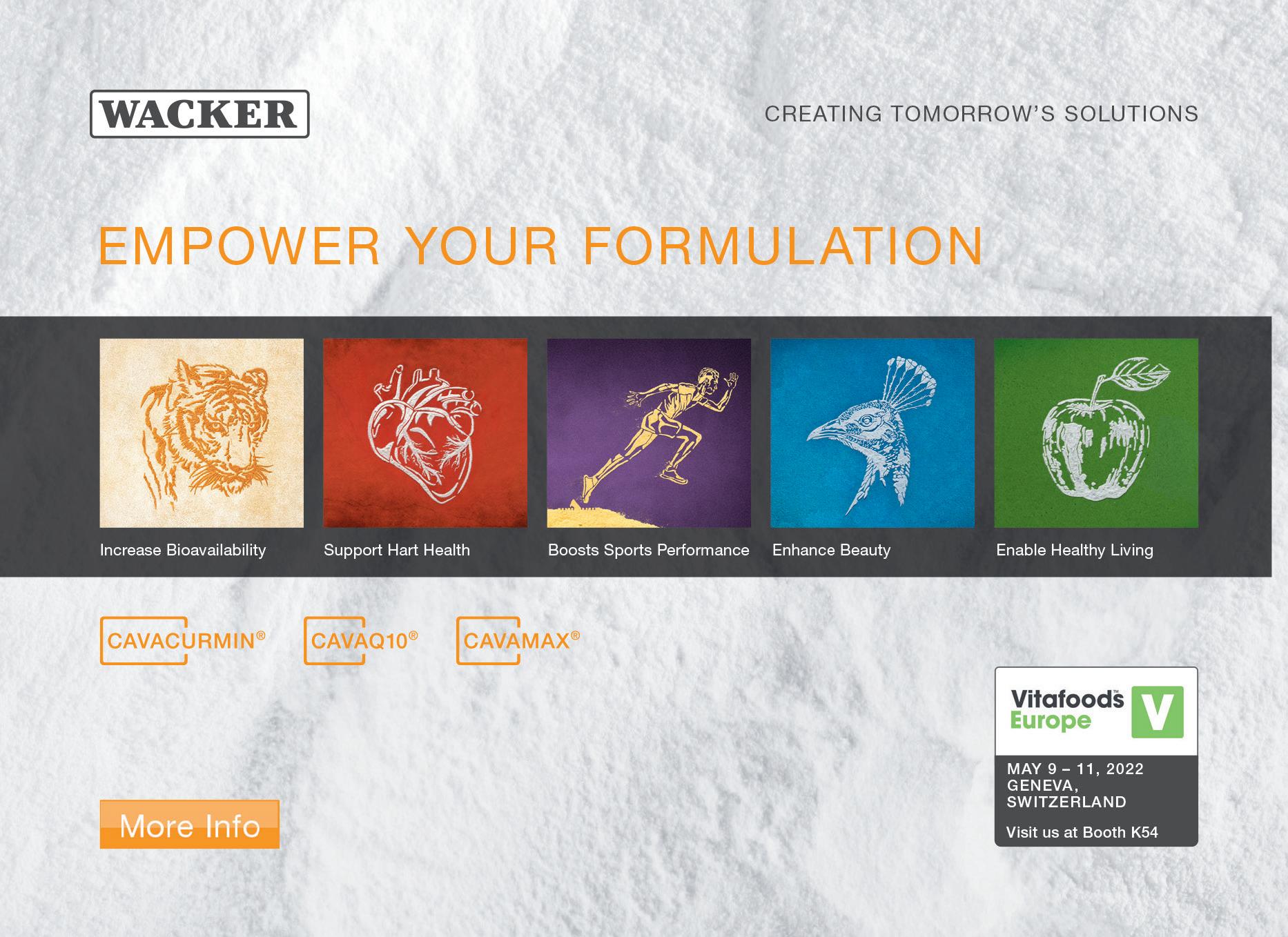
Whether training for a half-marathon or getting through an after-work gym session, harmonization of brain and body is universally important to achieving our
Consumer packaged goods (CPG) brands should leverage these holistic claims to differentiate their offerings in a crowded

Identifying which functional ingredients are catching the consumer

eye
While demand for healthy and immunity-boosting products continues to grow postpandemic, consumers are increasingly searching out natural products that actively support healthy living Nicole Jansen, team manager of insights and innovation at Innova Market Insights, identifies key trends in this space, and look at how brands can better capitalise on emerging opportunities
What are the drivers behind the current consumer demand for healthy and immunity-boosting products?

“Across all age groups, from Gen Z to Boomers, consumers have told Innova that health should be the most important driver of new product development. We have also seen our survey respondents state – in large numbers – that they believe it is never too soon to take steps towards healthy aging and holistic wellbeing. Factor in the pandemic, when people started to take greater responsibility for their own health needs, and you have a huge demand for products that can be shown to have positive benefits.
“This has translated to purchases. One in three consumers globally say they’ve recently bought food and beverages to boost immunity. Even more are seeking out food that positively affects their wider health; not just reducing the things perceived as being bad for you. And over half check the ingredients on functional foods, which displays a deeper understanding of what ‘healthy’ means, a desire for more knowledge, and a need to see evidence.”
How has this consumer demand on health and nutrition evolved since the pandemic?
“Last year, Innova asked consumers what aspects they have engaged in most to live healthily over the previous 12 months. At 45%, the biggest response was eating a healthy, nutritious diet. For many, this focus on food and the benefits they now seek has a direct line back to the concerns that grew during the pandemic. People want to protect their immune systems and many are seeking to boost their mental health. There is also wider awareness of and interest in the benefits of supplements.”
What product-categories are proving popular?
“Categories seeing the biggest share of innovation in functional food and beverages are baby and toddler, sports nutrition and dairy. We also see more beverage consumers seeking out drinks with a purpose beyond tasting good and quenching thirst.
“However, the influence of health and wellness trends are crossing many categories and answering a range of demands. It’s not just major health concerns like immunity that are being addressed, but areas such as mood and sleep. Products that improve gut health are also seen as having a major contribution to overall wellbeing.”
What about in terms of ingredients?
“In terms of ingredients, consumers associate freshness and naturalness with healthiness. So, fruits, vegetables, nuts, all are viewed positively. High protein, low or no additives and vitamin-rich ingredients catch the consumer eye.”
4 Read more on Vitafoods Insights
Nicole Jansen, Innova Market Insights
What continue to be some of the challenges to successfully tapping these opportunities?
“Supply issues are a factor, even more so due to the war in Ukraine, but price is a major consideration during economically volatile times. The cost-of-living crisis has hit globally and across income groups, with consumers really noticing the effects of price inflation and product shrinkflation. Almost half the respondents to Innova’s latest global survey said it was hard to eat healthily when nutritious foods are less affordable.”
What key messages do you hope to communicate in your presentation?
“One message would be that the key consumer demands of health, cost, quantifiable benefits and trusted claims majorly impact every market. People expect health to be the number one consideration in product innovation. They then want to trust claims linked to those products and they’ll turn to clean, clear messaging and trusted certifications for reassurance. Most consumers (71%) tell us they are seeking simple, affordable nutritional solutions.”
How do you see demand related to functional foods evolving in the near future?

“A number of Innova’s Top Ten Trends for 2023 speak to the future direction for functional foods. Redefining Value looks at where consumers draw the line on compromise, while Affordable Nutrition highlights the financial and emotional value consumers place on healthy eating. Our number nine trend, Unpuzzle Health, reveals the importance of simple, trusted communication. The demand for healthy, functional food and beverages will remain high so brands need to win trust in their products and give evidence of their benefits.”
Europe Knowledge Partner
 Vitafoods
Vitafoods
The long-term future is bright for the US supplement market, says SPINS
While the current consumer focus on health represents a boost for the supplements industry, meeting expectations for functional, clean label products that fit with everyday lifestyles can be a challenge Brandon, vice president of partnerships for SPINS, takes data-driven examination of the US dietary supplement industry, highlighting innovation, key opportunities, and potential barriers to growth
What are some of the key factors behind the current consumer focus on both personal health and sustainability?
“The current consumer has become a values-driven one. Personal health as well as the health of the planet are two of the top values important to the modern shopper. This is led by the growing trend of food as medicine as well as the overall awareness of the role that the food industry has played in climate issues and pollution. Consumers are often willing to pay more for the products that align with these two values.
“Much of the innovation we see is around products being more functional, which often includes ingredients commonly found in supplements moving over to food, and also, more responsible ingredient sourcing as well as packaging innovations to reduce waste and environmental footprint.”
At the same time, what are some of the challenges to tapping these opportunities?
“The economic uncertainty of the times has caused consumers to have to make tough decisions on what products to purchase. Grocery store prices continue to rise at a much too high rate making vitamin or mineral supplement (VMS) purchases sometimes a casualty.
“A few things are in favour for VMS products, however. The [average rank position] ARP of this category has typically gone up by much less than food and beverage categories, which means that while the short term may be cloudy and uncertain for the category, the long-term impact looks bright as the gap between food and beverage products and supplements comes closer together, consumers may feel less sticker shock at some higher price point products.
“Consumer trust has always been and remains an issue with VMS products. Luckily, more third-party testing and transparency is becoming available. Hopefully, this will lead to a lot more – and warranted – trust in the products being purchased.”

Could you give us an overview of the key trends and data regarding the US market?
“The sports and active nutrition category has been the fastest growing supplement category for each of the past two years. However, coming off a few record-breaking years, the overall VMS landscape is flat in terms of growth. Most channels have shown a decline in units sold. In addition, the permanency of the behaviour change for shoppers shifting online during the pandemic was overstated. Some 92% of the growth in the category is coming from brick-and-mortar stores versus Amazon.”


Finally, what do you think the future holds for the US supplement market?
“As more people have become familiar with supplements, I expect the future to be very bright for the industry. Some key entry categories remain highly innovative. More consumer-friendly delivery formats also mean that more shoppers will more likely stick in the category. I think the shifting mindset of supplements being part of the food as medicine movement will propel innovation, and meet the values-oriented shoppers where they are.”
6
Vitafoods
Content
Europe
Partner
Read more on Vitafoods Insights
Brandon Casteel, SPINS
Achieving growth in an uncertain marketplace with a data-driven approach
In a world characterised by uncertainty, identifying potential opportunities in your market has never been more critical – or challenging Eric, vice president of business insights at New Hope Network, explains how businesses can better use data to successfully navigate the supplements market
Post-pandemic, the world has been upended by war, a cost-of-living crisis, and the looming threat of recession. Such uncertainty inevitably impacts consumer behaviour, resulting in market volatility. How can businesses make strategic decisions in such a context?
Eric Pierce, New Hope Network
“I want to give people as much certainty as I can in understanding the relative position of markets in the global dietary supplement environment,” explains Pierce.
“[The US] is the largest dietary supplement market globally, and what we are seeing in the US market will likely reflect some of the challenges being faced elsewhere.”
Growth in an uncertain world
Pierce’s key focus at Vitafoods Europe was to look at how businesses can more effectively use these growth and dollar sales numbers to really identify where growth opportunities exist. To do this, Pierce introduced a more nuanced way of working with data.
“Looking at growth and dollar sales tells you a lot about a market’s potential, but it shouldn’t be the primary way you make a final decision,” he says. “For example, businesses should take into consideration how population size influences dollar sales.
“China might seem like a super-attractive dietary supplements market, but if you take into account dollar sales per capita, it might appear to be a relatively inefficient market to enter.”
Alternatively, countries like Japan - smaller markets with a denser concentration of consumers – might be better choice. To make this judgement though, a more holistic approach to data is needed.
“I’m interested, really, in changing the way we look at growth,” says Pierce. “If we take into account metrics like population, GDP and health spending alongside dollar sales, what does this tell us? This is about taking a new approach to identifying where growth lies.”
New ways of using market data
Pierce draws his data primarily from two key reports – the Nutrition Business Journal’s Global Supplement Business Report, published in October 2022, and a special report providing a Supplement Market Economy Update, published in January 2023. The Global Supplement Report analyses sales and growth across 22 countries and regions, while the Special Report provides a mid-year update on the sector.
“The Nutrition Business Journal publishes a monthly journal, designed to help senior leaders in the dietary supplement industry keep an eye on where the industry is going,” says Pierce. “We also publish upwards of 12 reports a year with a deep focus on the US market, and a global report published annually.”
Pierce wants to move beyond presenting facts and figures, by introducing new approaches to using this data. By doing so, he hopes to provide business professionals with the tools they need to really move their businesses forward, in an increasingly uncertain world.
“[It] is really about a new way of thinking, and giving businesses a more nuanced way of thinking about pursuing growth,” he says.

7 Vitafoods Europe 2023 Trend Guide
How the cost-of-living crisis is impacting health and wellness purchases
Rising living costs and economic uncertainty have seen consumers re-evaluating their purchasing priorities Mike, head of research and insight at FMCG Gurus, will examine the impact of this trend on the health and wellness sector, and discuss key lessons for brands


While the consumer health trend predates Covid-19, the global pandemic undoubtedly accelerated a fundamental change in attitudes. And though the initial fear of Covid-19 has greatly diminished, consumers are as keen as ever on maintaining and improving their wellbeing.
“The pandemic enabled consumers to re-evaluate their lifestyle, and many felt that they were not as healthy as they should be,” says Hughes. “Many people have since made improvements, and they want to maintain this.
“At the same time of course, rapidly rising costs and food inflation have forced many consumers to reevaluate their purchasing habits, with price having a huge influence. Many consumers are having to make changes to their lifestyle, purchasing habits and socialising patterns.”
Prioritising value for money
As a result, many consumers see themselves as being at a crossroad. They still want health and wellness products, but are far more cost-conscious. Hughes predicts that over the next 12 months, consumers will continue to move away from focusing on preventing long-term illness and disease to more day-to-day issues such as dealing with emotional wellness, stress and anxiety, and weight management.
“Consumers are going to prioritise,” he says. “They will make savings on some products in order to justify spending money on others. While an attitude-behaviour gap needs to be taken into account, when consumers say they would cut out indulgence over wellness purchases, it does show that health is still an issue.
“I think we’ll see consumers increasingly seeking out products that are seen as good value for money. This means having multiple health claims, various ingredients, and evidence.”
Focus on essentials
Hughes believes that industry needs to focus on being value-oriented, and help consumers maintain their current level of proactiveness when it comes to health – without this being seen as too challenging or expensive.
In practice, this means developing products that are seen as fairly priced; aligned closely with what consumers want; and easy to incorporate into everyday diets.
“While certain sectors deemed as non-essential might struggle, there are core products that people will continue buying,” he says. “Brands therefore need to think about defining their product as essential, and moving it away from being some magic bullet or luxury item.
“Products that are seen as being integral to everyday diets will be key. We are going to see a move towards functional and fortified products in everyday categories such as dairy, cereal, plant-based and juice. This is where the key battleground will be over the next 12 months or so.”
8
Read more on Vitafoods Insights
Mike Hughes, FMCG Gurus
What we are going to see in other words, says Hughes, is a sort of dietary ‘back to basics’: three meals a day, a reduction in snacking and expensive additions, with some market segments at the more extravagant end likely to take a hit. He points out that people are far less likely to scrimp on what they deem as daily essentials, and this is where consumer interest in health and wellness can really be targeted.
“Until consumers feel confident, they will be cost sensitive,” says Hughes. “For brands, the key is to focus on fairness and transparency, understand key consumer health goals and target those product categories where consumers are less likely to compromise on price. And they also need to demonstrate compassion.”

 Vitafoods Europe Content Partner
Vitafoods Europe Content Partner
‘Until consumers feel confident, they will be cost sensitive’
Personalisation gives sports nutrition brands a competitive edge
As sports nutrition widens its mainstream appeal, brands are being squeezed to find new innovations, according to Rick, associate director at Mintel “Personalisation is that innovation,” he says

What key trends are currently impacting the sports nutrition sector?
“Three key trends are strongly impacting sports nutrition at present. The first centres on the continued drive towards more plant-based formulations and the second is a move towards human and environmental sustainability within the category.
Rick Miller, Mintel

“Thirdly, an overall ethos on low-sugar sports nutrition continues to strongly resonate across the sector as it has done for several years now. This low sugar shift is a particular challenge for certain product lines and formulators - athletic performance, health, and consumer choice all need to be balanced within the context of fuelling with carbohydrates.”
What innovative ingredients and applications will you be highlighting in your presentation?
“Brands and formulators continue to innovate within these trends through experimentation of plant and dairy blends within protein powders, as well as multi plant protein blends to achieve a taste, nutrient, and texture profile that satisfies both consumer tastebuds and performance.
“In sugar reduction, the functional fibre inulin has featured in 7% of global performance nutrition launches for the last three years. We’ll likely see more of these innovative ingredient substitutes that allow for a reduced glycaemic response and capitalise on recent diet trends such as ketogenic [or] low carbohydrate diets with functional benefits - such as prebiotic effects.”
How important is clinical evidence in convincing consumers of a product’s functionality?
“Evidence and transparency remain crucial assets to formulators across the sports and active lifestyle segments. Our data continues to highlight that consumers are sceptical regarding the claims made within sports, active, and lifestyle nutrition.
“For instance, our data across five European countries shows that on average, 28% of consumers don’t trust that sports nutrition products will deliver on the benefits they promise and 21% don’t have enough knowledge around them.
“Formulators and brands should therefore continue to think outside the box when it comes to demonstrating ‘proof’ regarding ingredient efficacy and further, making the ingredients relevant to ‘everyday performance’.
“One of the areas that we see some formulators beginning to embrace is the use of smart wearables and the health data that can be derived from these devices. A good example being Israeli start-up MyAir, which uses an artificial intelligence algorithm to predict consumer stress and tackle this with timed nutrient and adaptogen-rich snack bars to combat stress at the right times.”
10 Read more
on Vitafoods Insights
How do you see the sports nutrition sector evolving over the next few years?
“Personalisation is the future of the sports nutrition industry at the recreational and elite level. As over-thecounter functional and wellness drinks start to encroach on the category space once only occupied by sports nutrition, brands are being squeezed for new innovation. Personalisation is that innovation, as consumers continue to hunger for more bespoke approaches to their daily and sports performance.”
Vitafoods Europe Content Partner

Sponsored ad

Healthy ageing is driving personalised nutrition opportunities

While growing interest in both healthy ageing and personalised nutrition is driving new product opportunities, some brands are struggling to connect with consumers Magda, senior analyst at Euromonitor International, discusses the importance of meeting individual needs, while delivering solutions that meet consumer health goals

What are some of the key drivers behind the current healthy ageing trend?
“Consumers are reconsidering their eating habits, with many looking to increase their intake of healthy nutrients that can help them spend more years of life in good health. The importance of physical wellness as a means of ageing healthily continues to grow. Consumers view health holistically – both feeling healthy and looking healthy.”
What market sectors are well placed to capitalise on this trend?
“Rising participation in physical activities, boosted by both government initiatives and self-care awareness, is expected to benefit categories like sports nutrition, health and wellness food and drink, and sportswear to aid better exercise performances. Healthy skin is a priority as consumers move away from targeted anti-ageing.
“Natural and organic ingredients, as well as simplified beauty steps, create opportunities to meet demand for clear and healthy-looking skin. Recognition of the importance of internal balance, measured by factors including mental health, memory, sleep and stress, is growing globally. Consumers across all age groups are looking to address issues such as stress and sleep.”
How is this impacting the field of personalised nutrition?
“Nibbles and ready-to-drink (RTD) beverages containing plant-based ingredients with targeted functionality, and digitalisation of services are significant opportunities in this space. Snacks, confectionery, RTDs and milk are expected to gain wider traction in response to the blurring of lines between wellness products and traditional food and beverages.
“Compared to dietary supplements, they are more familiar to consumers of all age groups and tend to carry lower price tags. For example, functional chocolate is growing in Japan, with targeted functionality such as sleep health and memory. However, despite it being an untapped white space, efficacy remains a major challenge to justify the price.”
What product opportunities are emerging from this intersection of these meta-trends?
“Product formulas towards shorter ingredient lists, as well as ingredients with more natural ones and those that incorporate well-known and traditional ingredients. “Added benefits in the form of functional ingredients are also becoming increasingly accepted as a means of promoting wellbeing and minimising nutritional gaps in the diet. Growing interest in preventing disease among older cohorts is driving demand for tailored products that target specific nutritional needs. The field of personalised nutrition has huge potential as a new food frontier.”
What to date have been some of the challenges to successfully tapping these opportunities?
“Perhaps it is the lack of labelling or [labelling that is] not right. Maybe messages coming from industry players or brands have not been clear for consumers or not intuitive or convincing.”
12
Read more on Vitafoods Insights
Magda Starula, Euromonitor International
What key messages do you hope to communicate at Vitafoods?
“Consumers are increasingly expecting products and services to meet their individual needs; personalisation has never been more relevant. At the same time, we’re seeing interest in optimising health span—not just life span—and an awareness that this means staying fit and supporting the body throughout a lifetime. Healthy aging and personalised nutrition intersect here, allowing companies to connect directly with consumers, providing unique solutions to not only address health challenges but meet their health goals.”
How do you see the interplay between the personalised nutrition / healthy ageing trends evolving in the near future?

“The adoption of healthy lifestyle habits that include spiritual and mental wellbeing, alongside physical wellness and good nutrition, has been identified by Euromonitor International as one of the megatrends having the furthest-reaching impact on industries and consumers in the future. Furthermore, through innovation in functionality, packaging or formats, companies can respond effectively to the needs of different age groups.”
 Vitafoods Europe Content Partner
Vitafoods Europe Content Partner
Introducing the Future of Nutrition Summit
The Future of Nutrition Summit came to Vitafoods Europe for the first time on 8 May 2023.
Taking place the day before the Vitafoods Europe exhibition opened, the one-day, in-person summit offered a snapshot of what the health and nutrition industry could look like in five or more years’ time.
The future-focused summit has been running successfully at Food ingredients Europe (Fi Europe), our specialised event for the food and beverage ingredient industry, and this year, the Vitafoods audience could enjoy the discussions focused on the future of personalised nutrition, the digitalisation of health, new technologies for health management, and emerging sustainable solutions across the value chain.
Independent thinkers from the nutraceutical industry and beyond shared their insights into how the health and nutrition landscape is evolving. In addition to cutting-edge content, the summit offered ample opportunities for peer-to-peer networking with C-suite experts from diverse disciplines and industries, including food science, innovation, sustainability, retail, nutrition, and public health as well as startups, scale-ups, and investors.
Speakers included Laura Katz, CEO and founder of the precision fermentation startup making breast milk proteins, Helaina; Agathe Danjou, director of evolution and disruption strategy at Danone; and Dr Evan Berk, global director of nutritional sciences and innovation at Unilever.
How using network science creates opportunities in the era of ‘multi-omics’
Techbio firm Eagle Genomics has developed a ground-breaking network science approach to data and is using this to help R&D teams achieve more efficient, effective product development focused on the microbiome, multi-omic biomarkers, and more
While microbial data can yield significant innovation opportunities, interpreting the sheer amount of information available can prove challenging. What’s more, traditional scientific practices do not always give the full picture.

14 Read more on Vitafoods Insights
Eagle Genomics is pioneering a fresh approach to science that could revolutionise how industries approach innovation. By collecting populations of data and examining the networks between them, the TechBio company aims to achieve a more holistic understanding of biological systems.
“This is not biotech; rather, we are about applying technology to elucidate biology,” explains Yvonne Pinto, director of bioeconomy at Eagle Genomics.
“Network science is about looking at populations of data by applying deep science. It’s not traditional science - looking at just one microbe and its interaction with a host - it is about looking at a range of microbes and examining the metabolites they produce, other interactions etc. This is what helps us to understand the whole system.”
Focus on microbes
Eagle Genomics aims to use its tech-driven data approach to drive sustainable change across a range of issues that impact human, animal and planetary wellbeing. This is what the company calls its “one health agenda”. A key focus is on microbes, because of their importance to life and their potential in finding sustainable solutions to global challenges.
“This includes finding solutions to inflammatory diseases and metabolic health,” says Pinto. “These issues can be addressed by functional foods and natural ingredients. Microbes also have a role to play in soil and plant health, regenerative agriculture and combating antibiotic resistance. They condition the availability of nutrients to plants, the adaption of plants to stress, and facilitate the nutrient content of plants. Microbes enable sustainable life on earth in all manner of ways.”
Microbes are in our food system – in pre- and probiotics and fermented foods for example – and exist in our gut. Scientists are continually finding out more about the health benefits of a healthy microbiome, with growing evidence of links to mental health and prevention of non-communicable diseases. Everything is connected.
“We also know that the microbiome regulates our ability to respond to therapeutics,” says Pinto. “We could, for example, manipulate the microbiome to tip us into ‘responder’ mode.”
Making data-driven innovation available
Eagle Genetics has developed a cloud-based software platform, and works with companies interested in identifying underlying microbial mechanisms, how they function, and what potential applications might exist.
Networks of associations between big datasets - on multi-omic biomarkers for nutrients, pre, pro-biotics and post-biotics for example - are examined using deep learning. In the past, such data might have been siloed. The platform also enables the integration of public data sources with proprietary data sources.
“The initial data are often proprietary to our customer, but we saw an opportunity to combine these with other datasets in ways that we never could do previously. This is why the deep science aspect is so important – our teams understand the underlying questions which drive the need for insights of our customers. We think the potential applications are huge and what drives us is the ‘one health’ agenda,” says Bram Goorden, chief operating officer at Eagle Genomics.
Eagle Genomics has helped major brands to deliver a range of microbiome-benefiting products including an enzyme-based toothpaste that retains oral microbiome health, and provided evidence for claims on microbiome-friendly products and novel ingredients in various industries, such as agritech, nutrition, and human health. Partners also include standards organisations and technology partners.
Ultimately, Pinto, Goorden and their colleagues believe that to transform our global food system, we need to focus on how we provide nutrition to both humans and animals. And given the role that microbes play in conditioning the nutrient quality of our food, this should be a key area of focus.
15 Vitafoods Europe 2023 Trend Guide
The Vitafoods Europe Conference
The two-day Vitafoods Conference focused on tackling current challenges and identifying immediate opportunities for the nutraceutical industry, with leading experts and analysts from across the field presenting data-driven, evidence-based solutions; ingredient insights and innovations; and formulation strategies.
Taking place at the Vitafoods Conference Theatre on the exhibition show floor, conference delegates enjoyed a mix of expert presentations and panel discussions that provided in-depth insights into challenges affecting the industry, potential solutions, and examples of how the latest scientific research can be translated into new product development.
Talks focused on four of the most important categories for the nutraceutical and supplement industry of today – sports and active nutrition; cognitive and emotional health; metabolic and immune health; life stages and healthy ageing – and, in addition to the highly curated content, there was the opportunity for peer-to-peer networking.
Speakers included Dr Richard Siow, director of ageing research at King’s College London, chief editor of Frontiers in Ageing, and scientific advisor to numerous health companies; Rick Miller, associate director of specialised nutrition at Mintel; and Philipp Gut, head of data sciences and precision nutrition at Nestlé.
Conference Partners
Content Partners


16 Read more on Vitafoods Insights
Scientific innovation behind sports and active nutrition success
New advances in compound screening and extraction techniques are revolutionising the sports and active nutrition sector, according to Dr Guru, expert in healthcare innovation and commercialisation He explains how botanical extracts can be leveraged to improve exercise performance
There has been a notable increase in investments made in technological innovation, clinical research, and patent protection for materials in the supplement industry in recent years. Today’s sports nutrition consumers are better informed than ever, and products that are shown to have proven performance benefits are far more likely to prosper in the marketplace.
“This is quite evident by the growth and popularity of various branded botanical extracts that are backed by multiple studies demonstrating effects on muscle strength, endurance, and recovery,” explains Dr Ramanathan.
“Such ingredients commonly feature in bestselling sports nutrition products on the market. Consumers are constantly looking out for new innovations that can deliver results, and clinically proven benefits are a compelling way of differentiating products for the customer.”
Advances in compound screening and extraction techniques
Advances in science have meant that there are more precise and accurate ways of extracting components from botanicals using cutting edge methodology. This has enabled companies to identify and purify components that may not have been previously accessible. In addition, water extracts and extracts made with ‘gentle’ solvents are compelling for today’s customers who are very focussed on quality and sustainability.
“With regard to compound screening, the use of artificial intelligence to predict the safety and efficacy of components is a growing trend,” says Dr Ramanathan. “This allows R&D teams to fail fast and fail safe. This can cut costs and drive speed to market by reducing the amount of time and effort required to identify viable ingredients suitable for further R&D.”

These changes have helped to fine tune ingredients that are available for formulators to use. They have resulted in materials with superior organoleptic properties including taste, odour, mixability and better versatility in various delivery forms such as powders, tablets, ready to drink beverages, gummies, etc.
In addition to physical features of the product, the growing body of evidence on ingredients is helping in the intelligent design of products to target very specific customer needs. The development of competitive and differentiated marketing and messaging claims - to educate the customer on product benefits – has also been enhanced, thanks to these technological innovations.
17 Vitafoods Europe 2023 Trend Guide
Dr Guru Ramanathan, Pennington Biomedical Research Center / Dutch Medical Food
Dr Richard Siow on measuring healthy ageing: Biomarkers, DNA methylation, and happiness
Scientists are revealing how molecular pathways associated with healthy ageing can be activated or deactivated by nutrients – an exciting development in the science of longevity But we mustn’t lose sight of the bigger picture, says Dr Richard Siow, who argues that healthy ageing is as much about emotional wellbeing as it is DNA methylation patterns
“There are many, many different markers that you might want to put in place to build a picture of [...] the holistic view of wellness,” said Richard Siow, whose long CV indicates the clout he has in the field of longevity research.
Siow is director of ageing research at King’s College London; visiting senior academic at the University of Oxford; chief editor of Frontiers in Ageing; advisory board member of The Lancet Healthy Longevity; and scientific advisor to numerous health companies.

Possible biomarkers could be the level of stress hormones like cortisol in the blood; sleep quality and quantity; someone’s hand grip strength; or even how much someone feels happy, in addition to levels of glucose and cholesterol that are more routinely measured.
DNA methylation patterns are also increasingly understood as important biomarkers for health ageing. In fact, they are “our biological ageing clocks”, said Siow.
DNA methylation is a process by which genes are regulated over time. Like the microbiome, methylation patterns change throughout life and are impacted by diet, sleep patterns, exercise, stress and lifestyle. If someone’s methylation pattern resembles that of a younger person, this suggests a healthy ageing trajectory.
Although the research is still in the early stages, one exciting development in the field of healthy ageing research is the growing understanding of how molecular pathways associated with longevity can be activated or deactivated, including through nutraceuticals, said Siow.
“[...] You might consider [this] as longevity-enhancing pathways at the cellular level. There’s currently much research in worms, flies, mice, and model organisms, but we need to learn more about people in the context of lifestyle.
“Our wellness trajectory isn’t based only on our genetics and our DNA profile. That’s important, but [it’s] also how certain genes are switched on and switched off, and we can monitor that in many different ways to look at the DNA being activated or silenced,” said Siow.
Using nutrients to ‘downregulate’ specific genes
An individual, for instance, may have genes that increase inflammation in the body. Scientists are investigating ways to “switch off” or downregulate these genes in order to reduce inflammation. Noting that the real-life applications of the research were “still lacking in some respects”, Siow asked:
“What are the nutrients that may downregulate it? What is the genetic profile for the individual and are they at higher risk of inflammation because they have certain genes that can be more readily switched on?”
Some individuals may not have the relevant molecular pathway that metabolises a nutrient into an active compound “switched on”, which means the nutrient won’t be beneficial for the individual.
18 Read more on Vitafoods Insights
Dr Richard Siow, King’s College London
Personal wellness: Putting the science into perspective
While nutrition is undoubtedly a fundamental component of healthy ageing, Siow was reluctant to pick out certain nutrients that benefit longevity, instead preferring more holistic recommendations.
“Perhaps the research has shown that in [mice] you can extend lifespan if you caloric restrict, and so on. But you’re not considering the psychological well-being of that poor mouse that you’re not feeding,” he said.
“Or you may be super anxious that you are taking all of these supplements, and you’re looking at all of your fitness trackers at the same time, and you’re paranoid that you’ve not done 9,999 steps. Those kinds of things don’t help your psychological wellbeing.”
Psychological wellbeing is therefore of key importance to healthy ageing. And while pursuing personal wellbeing can mean different things for different people – it doesn’t have to mean meditating every day for 30 minutes, Siow said – it should ideally take place within the general limits of what constitutes a healthy diet and lifestyle. Some people may say their emotional wellbeing is fulfilled by watching TV all day, staying up late, and eating fast food – but this is not the foundation for good physical or mental health.
Siow emphasised that there was a role for nutrient supplementation and nutraceuticals in healthy ageing, but said it was important to “put personal lifestyle in perspective”.
“The nutraceutical companies are trying to say: ‘This will extend your lifespan, or this will activate the mTORsirtuin axis or the AMP kinase, and your stem cells are going to be jumping for joy.’ But are you going be happier? No,” he said.
“It’s about mindset [...] and being aware about the stresses of the workplace and so on. It’s really important that we consider how a healthy diet, which may or may not include supplements, can also lead to psychological wellbeing.”
Tracking health in real time
Nevertheless, a growing understanding of key biomarkers associated with healthy ageing and developing accurate metrics and methods to measure them could allow people to be aware of their own personal longevity trajectory.
Such metrics would allow people to track their health regularly throughout their lives so that they reach an older age whilst remaining in optimal health, rather than living with multiple age-related health conditions as is so often the case today.
“[We need] more public health education, more societal interventions, more awareness of the value of health tracking, more translational and clinical research, and more funding for these kinds of areas, because global populations are living longer, but not necessarily healthier,” Siow said.
Covid-19: A ‘ground-breaking’ influence on proactive health
Finally, the healthy ageing category is evolving not just through scientific research and tech advances: social dynamics and the public mindset towards healthy ageing are also changing.
The impact of the Covid-19 pandemic has had a “ground-breaking” influence on people’s awareness of personal health and willingness to test regularly to reduce the risk and severity of illness and, if necessary, taking action such as hand washing, social distancing and acceptance of vaccination at both an individual and population level, Siow said.
“The willingness to be tested – understanding that necessity to reduce the risk and severity of illness as we age – [...] is an important concept that we have all been educated about. That, I believe, will drive the future mindset for healthy ageing, health in general, and wellness,” he added.
19 Vitafoods Europe 2023 Trend Guide
Identifying natural ingredients to support sleep and mental wellbeing
Many of us struggle to get a good night’s sleep, and at times find the hectic pace of modern life exhausting There is increasing awareness – among consumers as well as experts - that all this stress can damage our emotional and physical health Adrian Lopresti discusses which natural, science-backed ingredients can support mental wellbeing and identifies promising new developments in this field.
We all know how a bad night’s sleep can impact our performance and mood the following day. When this becomes a recurring pattern, our mental health can begin to be significantly affected.
Adrian Lopresti, Clinical Research Australia
“Unfortunately, our current lifestyle practices are not conducive to good sleep,” says Lopresti, managing director at Clinical Research Australia and a registered Clinical Psychologist with 25 years of clinical experience. He is also the founder of Personalised Integrative Therapy, a holistic treatment for depression and anxiety.

“For example, we are increasingly exposed to excessive light at night-time. Many of us are also stressed about work, health, finances, and family issues, which can all exacerbate sleep problems. Eating a diet comprising refined sugars and artificial ingredients will also hurt our sleep.”
Science behind natural solutions
Growing awareness of mental health issues – especially since the Covid-19 pandemic – has seen growing interest in targeted supplements. A key challenge, however, has been the fact that pharmaceutical ingredients specifically targeting these health issues have been shown to be only moderately effective.
“Most medications are also associated with several side effects, including weight gain, drowsiness, sexual disturbances, and digestive problems,” explains Lopresti. “People are therefore looking for effective and safe options to improve their sleep and enhance their mental wellbeing.”
Emerging research has shown how many natural ingredients can help improve mood and promote sound sleep, and are associated with fewer adverse reactions. Popular ingredients to support mood include saffron, ashwagandha, probiotics, St John’s wort, magnesium, and curcumin, just to name a few.
Exciting options include saffron, magnesium, glycine, and tart cherry juice
Common sleep-promoting supplements include valerian and melatonin.
“However, the research on these ingredients is mixed,” says Lopresti. “Some exciting options include saffron, magnesium, glycine, tart cherry juice, chamomile, and holy basil.”
In addition, consumers are becoming increasingly aware of the gut-brain connection. Scientists now know that there is a bi-directional relationship between the gut and the brain, and new research has demonstrated the positive mood-enhancing effects of ingredients that target gut function, such as pre- and probiotics.
“Inflammation can also affect both mental and physical health,” continues Dr Lopresti. “In this respect, antiinflammatory ingredients have shown promise in supporting good mental and cognitive health.”
20 Read more on Vitafoods Insights
Importance of clinical evidence
Lopresti underlined the importance of caution when it comes to using herbal ingredients, especially generic ingredients with no research supporting their efficacy and safety.
“Formulators should choose standardised extracts with good evidence supporting their effectiveness,” he says. “In addition to this, it is crucial for companies formulating products with several ingredients to ensure that the ingredients are stable when combined and have synergistic actions.”

Lopresti notes that most products on the market base their claims on research on single ingredients. For natural supplements to be increasingly accepted by consumers and health professionals, final products should undergo clinical trials to support their safety and efficacy.
“Just because a study shows an ingredient works when used in isolation, it does not necessarily mean combining several ingredients makes it even more effective,” he says.

Vitafoods Europe 2023 Trend Guide
21
Understanding the science behind immune health
Various studies have underlined the benefits of optimal nutrition for a wellfunctioning immune system Professor Manfred provides an overview of cutting-edge science in this field, and discuss how innovative research can be translated into functional products
One of the most challenging events for global public health and healthcare systems. The pandemic also transformed consumer attitudes to preventive nutrition and maintaining immunity.
Lessons from the Covid pandemic
“During the pandemic, health authorities and the medical community focused on recommendations for social distancing, washing hands and wearing masks and were waiting for the availability of vaccines,” notes Manfred Eggersdorfer, professor for healthy ageing at the University Medical Centre Groningen in the Netherlands.
“Authorities and the medical community did indeed learn from previous pandemics like the SARS-CoV pandemic in 2003 and others. However, a lot of time was wasted just waiting for the availability of vaccines. And when vaccines did become available, we learned that they did not fully protect. Infections and transmissions still happened with vaccinated people.”
Eggersdorfer firmly believes that immuno-protection should be the cornerstone of medical practice. In other words, it is not something that should be over-looked in either the presence or absence of threats. He also notes that consumers increasingly took it upon themselves to stay informed during the pandemic, through social media as well as scientific publications.
“We saw a wealth of scientific information about the role of optimal nutritional status for a well-functioning immune system,” he says. “A number of studies with micronutrients were initiated. Studies demonstrated that people with optimal micronutrient status had a lower risk of infection, and in case of infection a milder case and a lower risk of mortality.”
Step-change in consumer attitudes
Eggersdorfer believes that consumers have taken lessons learned from the coronavirus pandemic, and have continued to use micronutrients to support their immune systems.
“I think we experienced a fundamental step-change in people caring for themselves,” Eggersdorfer says. “People are keen to build on healthy nutrition combined with supplements.”
Furthermore, nutrition experts have since published many papers about the role of optimal nutritional status for the immune system, with benefits not only in strengthening the immune system but also in reducing risks for cardiovascular disease and other issues.
Eggersdorfer notes that experts including professor Hermann Brenner from the German Cancer Institute in Heidelberg have argued that supplements are a safe and effective was to fill the nutritional gap, helping individuals to reduce disease risks and for society to reduce health care costs. The EU recently called for the eradication of micronutrient deficiencies, and a reduction of nutrition inequalities across the EU.
“Optimal nutrition and the role for health, well-being and performance has become a priority in science,” says Eggersdorfer.

22
Read more on Vitafoods Insights
Prof. Manfred Eggersdorfer, University Medical Centre Groningen, Netherlands
A wake-up call for industry
Eggersdorfer is calling on the medical community, authorities, and industry to join forces and address the widespread issue of inadequate intakes of essential nutrients.
“Optimal nutrient intake is important for health, wellbeing and performance,” he says. “Food fortification and nutritional supplements offer a safe option to complement diets and eliminate potential nutrient shortfalls. Solutions are available, and it is on us to make it happen. I plan to summarise the latest scientific findings, study results and nutritional solutions in the field.”
Furthermore, the immune health market is now a key opportunity for supplement producers.
“The supplement industry was innovative to develop new combinations of key nutrients for the immune system, as well as new product formulations,” Eggersdorfer remarks. “I expect that immune health will continue to be high on the agenda by consumers, scientists, and industry.”
Counting the costs of going green:

Vitafoods Insights Sustainability
Survey 2023
In 2022, the European Commission adopted a proposed regulation to ensure sustainability and corporate social responsibility (CSR) throughout global value chains.
To gauge support for these kinds of initiatives, Vitafoods Insights conducted a survey, asking our readers what they thought of such regulatory frameworks, what their priorities were for sustainable business, and who should foot the bill.
As many as 84% of respondents agreed that governments should establish a minimum legal standard for corporate sustainability and due diligence, with just 16% opposing such mandatory action. However, over two-thirds (64%) of participants said companies should be allowed to define their own corporate sustainability standards.
To find out more about what nutraceutical industry stakeholders think of mandatory sustainability regulations, read our full report based on the survey results.
Introducing the Vitafoods Europe


The inaugural Vitafoods Europe Startup Innovation Challenge offered health, wellbeing, and nutraceutical startups a unique opportunity to pitch their solutions and projects before a panel of expert judges for the chance to win high-value prizes. Startups also pitched their solutions on stage before the Vitafoods Europe audience.
The judges were looking for entrepreneurs making ground-breaking finished products and ingredients for nutraceuticals, supplements, or functional food and beverages and innovative technologies, services, and digital solutions that support the nutraceutical industry.
Meet the finalists of the 1st edition of the Vitafoods Europe Startup Innovation Challenge 2023!

1. Most Innovative Finished Nutraceutical Product
This category covers finished nutraceutical products offering innovation in ingredient composition, consumer focus, or delivery format.
Sweet Victory Gum
Sweet Victory Gum is a plant-based functional confectionery that blocks the sugar receptors on the tongue, helping reduce one’s sugar intake.

R3set
R3SET develops products that offer specific stress-related benefits like calming, unwinding cravings.
Terraseed
Terraseed creates sustainable and ethical supplements for vegans that are packaged in fully biodegradable and industrially compostable pill bottles.


Bread Free S.L

Bread Free produces gluten-free wheat flour that is suitable for celiac people, using a combination of biotechnology, AI, and by-products of the agrifood industry.
Plant Made Foods SIA / Fermentful
Fermentful unlocks the power of green buckwheat, producing fermented plant-based drinks that are free from gluten, dairy, and soy; and with zero added sugar.

24 Read more on Vitafoods Insights
Startup Innovation Challenge 2023
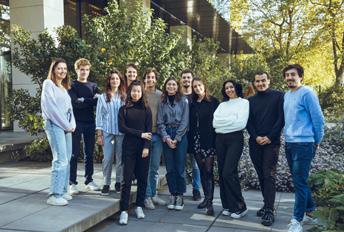



2. Most Innovative Nutraceutical Ingredient
This category covers innovative ingredients for nutraceuticals, supplements, or functional food and beverages that can offer scientific substantiation of their efficacy.
Novella
Novella leverages proprietary technology to grow nutritious, cultured botanical ingredients while leaving the whole plant out of the equation.

Kresko RNAtech
Kresko uses RNAs to design dietary supplements that re-educate the body to better cope with stressful and changing conditions.

EKTAH
Ektah develops a molecule, which is a human fat taste receptor’s agonist, that can naturally induce anorectic peptides, resulting in early satiety and weight loss.


Exosomm

Exosomm produces active anti-inflammatory ingredients containing milk exosomes for a variety of medical conditions, such as irritable bowel syndrome.

BCD Bioscience
BCD develops highly soluble and easily formulable barley beta-glucan oligosaccharide that can be used by pre- and early-stage diabetics to help manage their blood glucose levels.
Circul’Egg
Circul’Egg upcycles empty eggshells rejected by egg-breaking factories and turns them into high-value ingredients for nutraceuticals

25 Vitafoods Europe 2023 Trend Guide
Meet the finalists of the 1st edition of the Vitafoods


3. Most Innovative Service or Technology Supporting the Nutraceutical Industry
This category covers innovations that support improvements in ingredients sourcing and production, food safety and quality, traceability, transparency, smart packaging, and/or supply chain management.
Nimble Science Ltd

Nimble Science has developed a first-in-kind capsule-based precision sampling technology to perform liquid biopsies directly from the small intestine.

Chrysea
Chrysea develops precision healthy-lifespan interventions, aimed at optimising naturally occurring anti-ageing mechanisms, such as autophagy.

AgroGrIN Tech
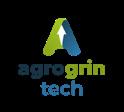
AgroGrIN Tech upcycles fruit and vegetable waste into 100% clean-label ingredients for nutraceutical, foods and cosmetic industries.
Hughes Biotechnology Co., Ltd.
Hughes creates next generation polyphenols that are totally water soluble and can easily transfer the natural gut barrier, resulting in faster absorption.
KÄÄPÄ Biotech
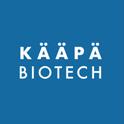

KÄÄPÄ Biotech promotes a sustainable, responsible, and versatile use of forests and cultivates large-scale, high-quality chaga mushrooms for the nutraceutical industry.

26 Read more on Vitafoods Insights
Europe Startup Innovation Challenge 2023!
4. Most Innovative Digital Solution Supporting the Nutraceutical Industry
This category covers innovative business- and consumer-facing digital solutions supporting the nutraceutical industry, with the aim of improving the sustainable development and/or personalization of nutraceuticals.
Healthy-Longer Gmbh

Healthy-Longer uses AI to analyse mental health symptoms combined with neurobiomarkers in dried urine samples in order to provide highly personalized neuro-nutrient recommendations.
NIUM
Nium has developed the microGUT platform, emulating the human gastrointestinal tract on an electronic chip, which allows to test the impact of ingredients on microbiome and metabolism.


PhenomX Health, SA
PhenomX Health uses expert driven AI to analyze hormonal health symptoms combined with home-based scientific biomarkers to provide precision nutrition recommendations that honor the biochemical uniqueness of midlife women.



AdoLE
AdoLE has developed a mental health app for teenagers that focuses on nutrition, sleep, and lifestyle, with actionable recommendations that can be routed directly to parents, guardians, or nutritionists.


27 Vitafoods Europe 2023 Trend Guide
5. Most Innovative Sustainable Solution Jury’s choice award






This special prize will be awarded to the startup with the most sustainable innovation. All startup finalists across all categories can be considered for this award, with the winners being decided by the expert jury. The startup’s overall sustainability efforts will be considered.




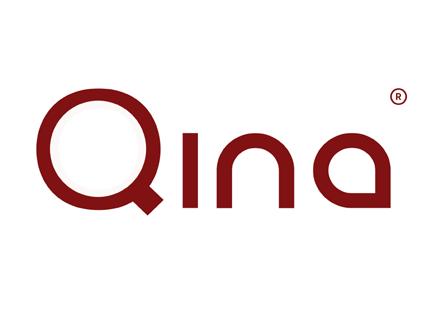
28 Read more on Vitafoods Insights
NCNC Nutrition Consultancy 1st Edition Supported by
Introducing VFI Webinar Series 2023

The VFI Webinar Series 2023 covers key nutraceuticals market topics, offering attendees the opportunity to get up to speed on marketing strategies.
Webinar Calendar 2023

10 live webinar days covering 5 key themes will feature live discussions and Q&A with topic experts. The sessions will cover market updates, consumer insights, regulatory updates, sourcing

Why attend?
Find out here
Innovation Tours, in co-operation with NutriMarketing

The Innovation Tours allowed visitors to easily discover new products and suppliers at Vitafoods Europe.
The tours were be led by industry experts from Nutrimarketing over the three days of the show. The tours highlighted how key suppliers are responding to market trends.
Sports and Active Nutrition Innovation Tour
The global sports nutrition market size was valued at $42.9 billion in 2022 and is expected to expand at a compound annual growth rate (CAGR) of 7.4% from 2023 to 2030, according to a study conducted by Grand View Research. Such bullish figures are not surprising because, today, sports nutrition appeals not only athletes but also a growing number of consumers who want to enjoy a more active lifestyle.
From everyday athletes to active seniors, sports nutrition products can offer many different health benefits to these consumers: muscle growth, weight loss, energy, bone and joint health, hydration, performance and endurance, and mental focus.
This Innovation Tour featured products by the following Vitafoods Europe 2023 exhibitors:
• Ingredia
• Mibelle Biochemistry
• Friesland Campina
• Nuwen
• Prinova
• Volac International
• Lonza & Sirio
• Arla Food Ingredients
• Leiber
• Rousselot
Cognitive and Emotional Health Innovation Tour
The Covid-19 pandemic has brought mental health and wellness to the forefront, and made sleep health, managing stress, and emotional wellness a priority for millions. According to FMCG Gurus data, 46% of global consumers plan to improve their mental wellbeing in the next 12 months, opening up opportunities for product development.
In this tour, we talked about adaptogens and nootropics as well as the entire spectrum of biotics - probiotics, prebiotics, symbiotics, postbiotics, and psychobiotics – that leverage the gut-brain axis. The tour also looked at botanicals and plant-based bioactives that can promote relaxation, and many other ingredients that support good mood and mental wellbeing.
This Innovation Tour featured products by the following Vitafoods Europe 2023 exhibitors:
• Lubrizol
• Microphyt
• Monteloeder
• Activ’Inside
• Greevit
• Nexira
• Secom Healthcare
• Indena
• Botanic Healthcare
• Lehvoss
30 Read more on Vitafoods Insights
Metabolic and Immune Health Innovation Tour
The global immune health supplements market size was worth $55.29 billion in 2021 and is expected to more than double to reach $144.61bn by 2030, according to Polaris Market Research. The desire to boost immune health following several years of a virus-fuelled pandemic as well as a growing awareness of the link between gut health and the immune system are fuelling this market growth. FMCG Gurus predicts that two-thirds (66%) of global consumers plan to address their immune health in the next 12 months.
In this tour, NutriMarketing presented their pick of the most innovative nutraceutical and functional food and drink ingredients for metabolic and immune health products.
This Innovation Tour featured products by the following Vitafoods Europe 2023 exhibitors:
• Nating Italia
• Botanic Healthcare
• Dolcas
• Symrise
• Monteloeder
• Nexira
• CarobWay
• Activ’Insight
• AB-Biotics
• IMCD
• Nuwen
Life Stages and Healthy Ageing Innovation Tour
Between 2015 and 2050 the proportion of people aged over 60 will increase from 12% to 22% of the population, i.e. 2 billion people. In Europe, life expectancy at birth is 80.9 years on average. However, life expectancy in good health is only 63.7 years, so the priority today is no longer to extend life expectancy, but to improve the quality of life of ageing people. According to Innova Market Insights, 26-55 years old see ageing as an inevitable process and believe that their diet can help them age healthily.
While nutrition during the first 1,000 days of life has an impact on the health of the subject in adulthood, in this tour NutriMarketing explored the different stages of life for healthy aging.
This Innovation Tour featured products by the following Vitafoods Europe 2023 exhibitors:
• Fytexia
• Laboratoires Axamed
• Dolcas – Biotech LLC
• Givaudan International SA
• Symrise AG
• Vaneeghen
• Armor Protéines
• Synbalance SRL
• Azelis
• Roelmi HPC
Sustainability Innovation Tour
As the world’s population continues to grow and the climate continues to unravel, a new food transition seems more than necessary to save the planet and all that lives on it. Worldwide, from farm to fork, food is responsible of 26% of greenhouse gas emissions. In this tour NutriMarketing talked about food waste, water and energy reduction, upcycling, decarbonation, animal welfare, plant-based alternatives, fair trade, organic and local ingredients.
This Innovation Tour featured products by the following Vitafoods Europe 2023 exhibitors:
• CarobWay
• Fine Foods & Pharmaceuticals
• Solabia
• AstaReal AB
• Roelmi
• Friesland Campina
• Ainia
• Domaco Dr. med. Aufdermaur AG
• Activ’Inside
31 Vitafoods Europe 2023 Trend Guide










 Vitafoods
Vitafoods






 Vitafoods Europe Content Partner
Vitafoods Europe Content Partner







 Vitafoods Europe Content Partner
Vitafoods Europe Content Partner

































































